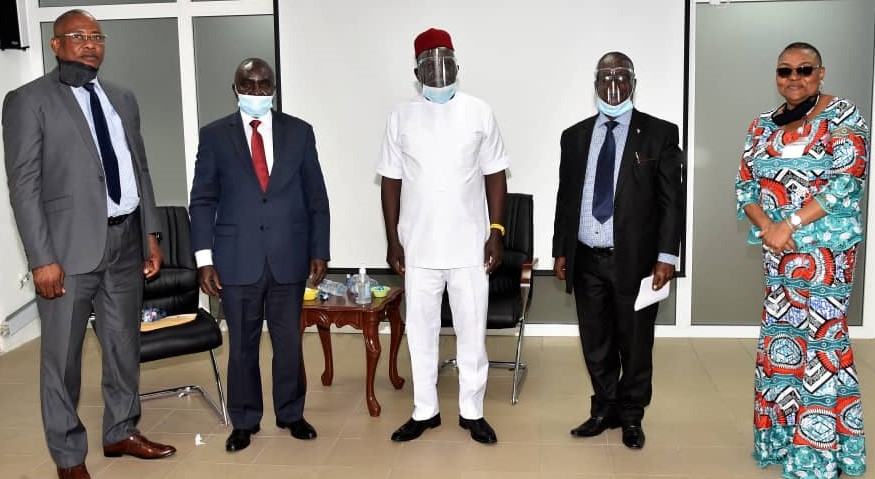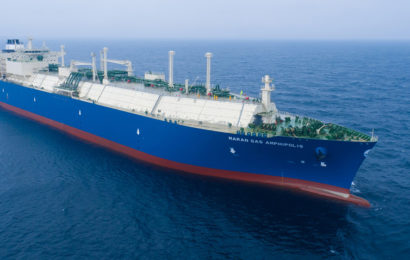
The Executive Secretary and Chief Executive Officer of Nigerian Shippers’ Council (NSC), Hassan Bello, has challenged stakeholders to adhere strictly to laid down procedures as part of measures to facilitate trade especially export.
Speaking Tuesday during a sensitisation workshop on webinar titled ”Trade Facilitation During/Post COVID-19 Pandemic: Challenges, Lessons and the Way Forward”, Bello said a Standard Operating Procedure (SOP) was being developed to aid export in the country.
He explained that the processes and procedures to be developed would ensure that all activities at the ports are done electronically.
According to Bello, the processes and procedures for export can be burdensome, and so the need to simplify and streamline it so that goods can be taken with speed.
Explaining further, Bello said:“Export cannot be buried under bureaucracy. We need an electronic platform, a kind of single window for export so that we have a one-stop shop where everything will be done.This will ensure that we have transparency and speed, and will reduce corruption in the system.”
Bello said that the country’s export was in competition with so many people in the world, “The people who use our export cannot wait for us. There is need for speed in our processes,” he said.
Making reference to infrastructure, Bello said any deficit in that area and logistics would lead to inefficiency in the processes.
Bello said: “For some exporters, it is when they come to the seaport that they will start to commence their processes and procedures, and that is more time wasting, ships rescheduling and so on.
“But when processes are done electronically, it will reduce time wastage at the seaport; when exports are brought in, they are just going straight to the ships and off they sail,” he said.
The executive secretary pointed out that a multimodal approach in transportation would also be introduced, as the country could not rely on the road alone.
Bello called on the Nigeria Customs Service to reduce delay in the cargo clearance process by eliminating roadblocks mounted by its officials to double check already examined containers released at the port.
NSE Director, Consumer Affairs, C Agu in welcome address said the sensitisation workshop form part of onging engagement with all stakeholders.
He explained the resolve of the Council to share knowledge with other stakeholders and confront identified challenges.
Contributing, Director General, Lagos Chamber of Commerce and Industry (LCCI), Dr Muda Yusuf, urged the Federal Government to introduce more reforms that would bring about port efficiency and ensure trade facilitation at the nation’s seaports.
Yusuf, while speaking on the topic, ‘COVID-19 and the Need for Trade Facilitation Reform’, called for a review of the nation’s trade policy, to achieve better results.
He identified the dilapidated port access road, lack of functional scanners and frequent breakdown of Customs server as challenges that remained setbacks to trade facilitation.
“Our trade policies need to be reviewed. For example, the border closure policy is impacting negatively on legitimate trade.
“Our foreign exchange policy is critical for trade facilitation, and leaving it for Central Bank alone is not good, and so the need to get things right. Tariffs should also be at a level that will be easy to enforce.
“Lack of adequate infrastructure is also another issue, as the country still does physical examination of cargoes,” he said.
Yusuf listed other key components of trade facilitation as process optimisation, cost reduction, transparency and inter-agency cooperation, digitisation and servicing institutional problems.
Chairman, Nigerian Association of Chambers of Commerce, Industry, Mines and Agriculture (NACCIMA) Export Group, Mr Kola Awe, explained that the COVID-19 pandemic had led to huge loss of time for importers.
Awe spoke on ‘Measures to Boost Export Trade in Nigeria During and Post COVID-19 Pandemic’.
He listed other impacts of the pandemic as loss of revenue, decline in quality of cargo, loss of integrity and contracts, and emergence of fake freight forwarders and documents.
“Exporters interface with more than 10 agencies, and during the COVID-19 era, all of them were shut down; just the shipping companies were operating, and this is a critical issue they faced.
“Strategies were put in place such as change in pattern of bill of laden, independent accredited companies were used, barge system adopted, diverting cargo to eastern port and use of tracking systems for trucks, since escort system was dropped,” he said.
Awe said that they were, among other things, looking forward to engagement with barge operators on the issue of high cost, access to finance to aid export, and government agencies to help decongest the port.
Chairman, African Centre for Supply Chain, Dr Obiora Madu, who spoke on ‘COVID-19 and Beyond – How Nigerian Maritime Industry Cope with the Emerging Trends’, urged stakeholders to obtain sound professional advice as they navigate the country.
He also gave advice on the way forward and measures to adopt to cope with the new trend, stressing the need to ensure that ports are open and dwell time of vessels reduced.
Madu said there was a need to facilitate cross border transport, ensure the right of transit, and allow transparency on information seeking.






